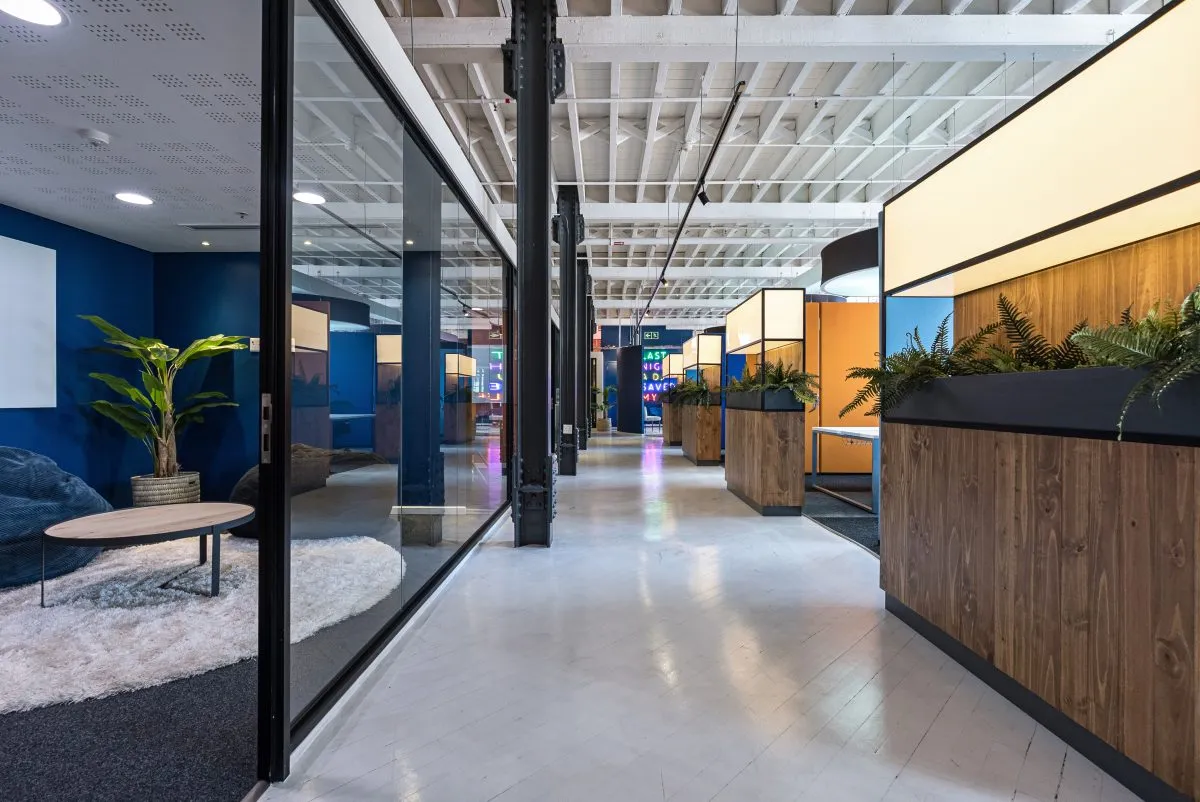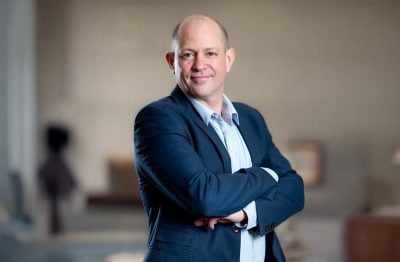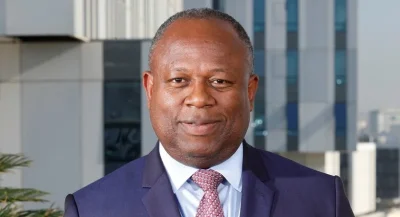Amid the bars and restaurants of Cape Town’s vibey Kloof Street, a converted warehouse plays host to one of the city’s most exciting business spots. Set over three brightly-lit, garishly-decorated floors, Innovation City Cape Town is an invitation-only community of startups, corporates, entrepreneurs and investors. A mix of closed- and open-plan offices, social areas and beanbag-cushioned presentation theatres, the workspace is designed to spark unique and surprising collaborations and erode the traditional barriers between the startup community and the titans of corporate South Africa.
Co-founder Kieno Kammies, a Capetonian businessman and well-known local radio personality, says the concept is designed to trigger unusual partnerships, unexpected meetings, new ways of thinking – and introductions to venture capital (VC) funders.
“Over a two to three-year period I think we’ve built a brand that’s quite well entrenched in the innovation sector. We’ve had Harvard visiting us, MIT rocked up to see what we’re doing – the first [hub] on the continent where we have corporations all the way through to VCs in the space.”
From telecoms group MTN to financial giant Old Mutual and retailer Shoprite, some of the country’s biggest businesses have used Innovation City to forge new partnerships. “That is where the magic lies – taking people that offer great value but who need to collaborate in order to accelerate the work they are doing and connect them with other people – connecting smaller businesses and scale-ups with access to markets. Connecting corporates to diversified partnerships which are nimble and enable them to work faster.”
A mixed picture for tech funding
South Africa’s tech sector is one of the most vibrant on the continent and Cape Town sits at its heart. The city’s lifestyle advantages have persuaded around 60% of the country’s startup community to set up shop in the Cape.
The national picture is encouraging. In 2023, 60 South African startups raised funding of $512m, an increase of around 55.4% on the previous year, according to Disrupt Africa’s African Tech Startups Funding Report. The funding accounted for 14.8% of Africa’s total for the year.
“One of the most mature ecosystems on the continent, South Africa has had a good year characterised by more later-stage activity than before, resulting in its biggest pot of funding yet despite the broader economic troubles at play,” the report says.
Fintech was the most popular sector, contributing 12 startups to the list; e-health came second with eight funded ventures; followed by the ed-tech space with five. The agri-tech, artificial intelligence and internet of things, and energy sectors each pitched in with four startups.
South Africa’s encouraging performance took place against a tough global backdrop – total African tech startup funding was $2.4bn in 2023, significantly less than the $3.3bn registered in 2022.
“I’ve no doubt globally, because everything is so disjointed and everyone is knocking on every door, that this liquidity crisis is affecting a lot of people,” says Kammies.
“We’ve seen businesses struggling to get to their second round of funding, because some of what these VCs are looking for is a little bit more stringent, and they’re a bit more risk averse sometimes.
“But if you look at this hub, the VCs we have, there’s Norskenn22 impact fund for Africa, a $208m fund; we’ve got Launch Africa VC. You’ve got companies like E4E Africa, which is a Dutch-South Africa VC, we’ve got a lot of funds here, like Endeavour, we’ve had great partnerships with Knife Capital.”
Corporates seek startup spark
Bringing the nimble startup community into close contact with the deep-pocketed corporates that have long dominated South Africa’s business scene could be one way to insulate them from global funding shortfalls. Kammies says Innovation City attracts corporates who have an “innovation mindset” and “don’t want to do everything internally”.
“The challenge with a lot of these corporates is when you sit inside the walls you are in an echo chamber. But when you take your growth and innovation teams outside the corporate and put them in a space with other creatives and innovators working in businesses that are complementary to what they want to achieve, that’s where the magic happens.”
Some of South Africa’s largest corporates have experimented with incubating in-house “startups” in a bid to harness the energy and ideas of the innovation scene, and some of these teams have made their way to Innovation City.
“We initially got hold of Iain Williamson, the CEO of Old Mutual Group… before we knew it Old Mutual’s Next176 [which builds, invests in and partners with startups and corporates] became one of our first tenants. We also knew people at MTN, Ayoba. Now we had two multi-listed companies in the building.”
MTN’s Ayoba, a free instant-messaging “superapp”, joined Innovation City as a tenant in 2022. ShopriteX, the supermarket retailer’s digital innovation hub, is a non-tenant member and hosts events and talks at the hub.
Digital nomad visas encouraged
If attracting the support of corporate South Africa has been a major goal, so has gaining the support of government. Kammies says that the hub is fortunate to be based in the Western Cape – “by far the most business-friendly province around” – but he says the regional government could do more to adopt an innovative mindset itself. “I said to the premier [of the Western Cape, Alan Winde] – if you take your innovation people, and spend time in spaces like this, it could feed a lot of your decision-making.”
The national government – rarely spoken of in good terms by businesses in the Western Cape – also stepped up with valuable assistance, Kammies says.
“People knock it all time, but when we needed a resource to unlock challenges with visas and ID, they gave us a resource… There are people we know who understand what we do and our needs and value and will work with us, and there are other departments that won’t even answer the phone.”
A key objective for the startup community is to convince the government to introduce “digital nomad visas” which would allow startup entrepreneurs from around the world to live and work in South Africa with a minimum of red tape. Kammies says the government is making encouraging strides towards enabling the visas.
“It’s an ongoing process: there are good people that want to get this over the line, but there is some pushback from the media. I don’t see it as an existential threat to any creative or anyone. As a matter of fact, if we can bring some of those skills in our country and make relationships where they can pass those skills on to South Africans, man it’s a win-win.”
Such mobility will also help South Africa’s tech firms to better integrate with the rest of the continent and the world beyond, Kammies believes.
“It’s not about South Africa as number one, Kenya two, Nigeria three – it’s about how do we work collectively as Africans to accelerate skills development on the continent. How do we become part of a digital citizenry globally where we build and export our solutions to Europe? We’ve got lots of challenges, but those represent opportunities which if acted upon will see us leapfrogging the world when it comes to payments, healthcare, education.”

 Sign in with Google
Sign in with Google 



